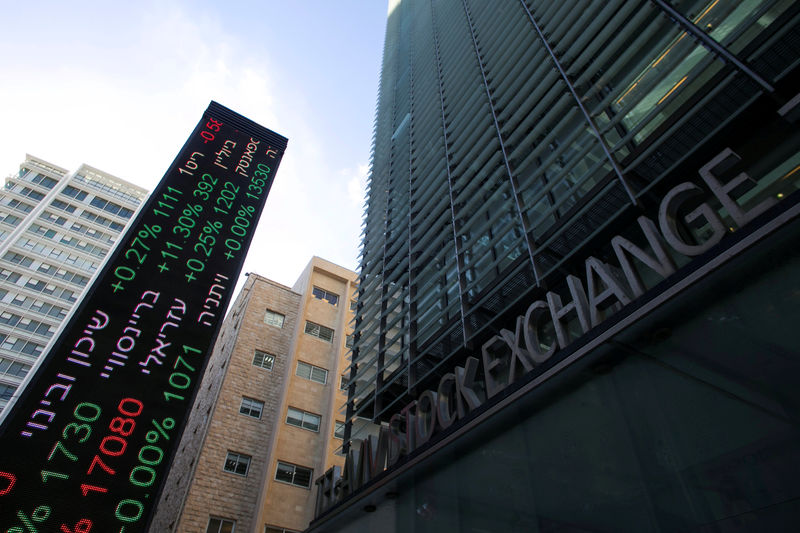TEL AVIV (Reuters) - The Tel Aviv Stock Exchange (TASE) said on Tuesday it is considering a new plan to try to enhance liquidity and improve transparency to try to attract more ordinary investors.
The plan would impose restrictions on off-exchange transactions and provide an incentive program for market making in shares in the Tel Aviv 35 index (TA35), similar to those available in leading exchanges worldwide.
TASE, which went public in August, has lost 40% of investors since 2010. With 447 traded companies at a market value of $215 billion, the exchange has been struggling with delistings and declining trading volumes.
In 2019, nearly 23% of the total volume of securities trading on TASE derived from transactions entered into off the exchange - some 80,000 a year, averaging 800,000 shekels ($231,000) per transaction. Reporting off-exchange transactions is not mandatory in Israel and they may be entered into at any agreed price and volume.
"This is significantly harmful to liquidity and to market depth and disrupts transparency to investors, in the absence of real-time full disclosure of the transactions," TASE said in a statement.
TASE is considering imposing a real-time reporting obligation on all transactions and permitting such transactions only for securities defined as "illiquid".
TASE is also considering improving liquidity by encouraging market-making in major shares through incentives to stock exchange members that meet certain criteria. The program would be assessed over the course of a year.
To date, there is virtually no market-making in major shares in Israel. Exchanges such as Euronext, the Frankfurt Stock Exchange, the Swiss Stock Exchange, the Korean Stock Exchange and more operate incentive programs for market-makers.
The programs are based on payments or refund of fees to market-makers, who make it easier for traders and investors to buy and sell.
($1 = 3.4684 shekels)
